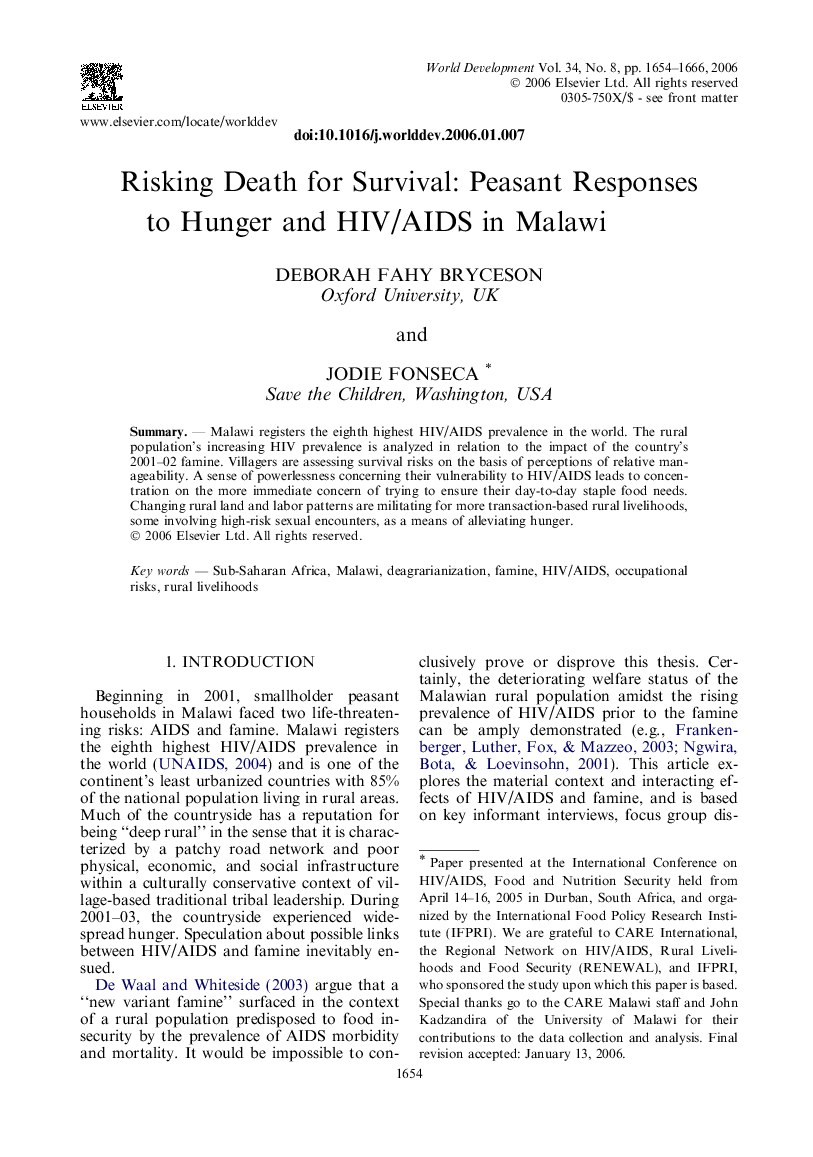| Article ID | Journal | Published Year | Pages | File Type |
|---|---|---|---|---|
| 992582 | World Development | 2006 | 13 Pages |
Abstract
SummaryMalawi registers the eighth highest HIV/AIDS prevalence in the world. The rural population’s increasing HIV prevalence is analyzed in relation to the impact of the country’s 2001–02 famine. Villagers are assessing survival risks on the basis of perceptions of relative manageability. A sense of powerlessness concerning their vulnerability to HIV/AIDS leads to concentration on the more immediate concern of trying to ensure their day-to-day staple food needs. Changing rural land and labor patterns are militating for more transaction-based rural livelihoods, some involving high-risk sexual encounters, as a means of alleviating hunger.
Related Topics
Social Sciences and Humanities
Economics, Econometrics and Finance
Economics and Econometrics
Authors
Deborah Fahy Bryceson, Jodie Fonseca,
